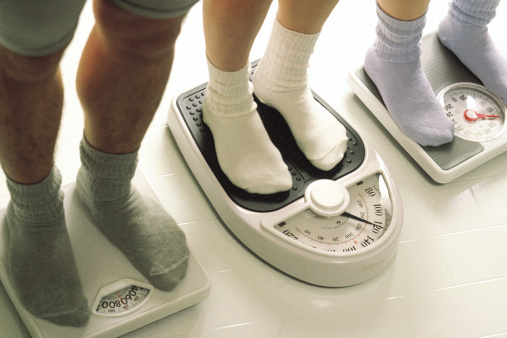Holly Parsons
The Wilson Agency, A UBA Partner Firm
Media outlets around the country were in a frenzy this week as the news broke about the “secret” lap band surgery of New Jersey Governor Chris Christie. While the Governor dismisses the attention and says “My weight is no one else’s business,” the incredible reaction from media and those focused on his public image clearly prove otherwise. While he may try to discredit the impact his private health choices have on others, this story is indicative of a much larger trend: your weight is, in fact, becoming everyone’s business.
The Wall Street Journal recently reported, and we in the industry have seen, that companies across America are penalizing workers for a range of health conditions, including high blood pressure and thick waistlines, as a way to fight rising health care costs. While many employers currently offer incentives for better health, the article reports that the share of employers who plan to impose penalties (think higher premiums) is likely to double to 36 percent in 2014.
So the question remains: Is your weight really “no one else’s business?” Should your diet and food intake remain personal choices, despite their impact on those around you, including your family, your co-workers and your employer? Maybe, but you’re going to pay for it, and in more ways than one.
I recently stumbled upon a book, The China Study, which may have forever changed me. It is based on an enormous study, dubbed by the New York Times as the “Grand Prix of epidemiology,” and the “most comprehensive study ever undertaken on the relationship between diet and risk of developing disease.” It was later turned into a movie, Forks Over Knives.
While I am far from being an expert on any of the conclusions, I can say that it made me feel good about becoming a vegetarian. The correlation between an animal-based diet and “Western” diseases, such as heart disease, diabetes and cancer were astounding. They also found connections to other diseases, like brain and eye diseases, arthritis, kidney stones and osteoporosis.
Some people I’ve talked to say they don’t care: life is short and they want to embrace the goodness and tastiness available to us. And I understand. For many years, the idea of giving up animal-based foods was weird and unthinkable to me, and when I finally made the move it was strange and uncomfortable at times. However, when I focus on eating plant-based foods, I feel so much better, and can’t help but think ahead about how I’m going to feel when my grandkids and great-grandkids come along. I’m enjoying the most of life now, and I want to extend that as long as possible.
Governor Christie says his health choices only pertain to family, and not his career. As an employee, however, we have an obligation to our employer to bring our best game to work every day. As a public official, he answers to his electorate. And, if you’re a leader in your organization, either formal or informal, the stakes just got higher because like Gov. Christie, people are watching you. You can try to effect change through Wellness programs but your example is the best motivator.
Making healthy food choices takes discipline. When you master this, you bring a depth of strength of will that improves any partnership or project.
Eat, drink and be merry… But remember, right or wrong, your choices are no longer a private affair.

